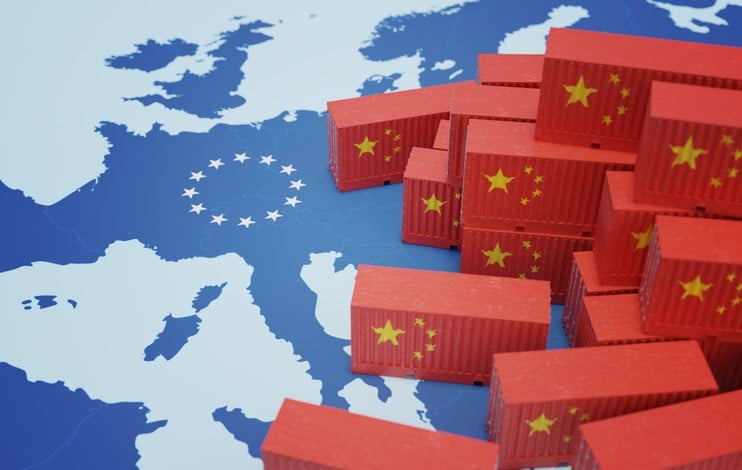 |
| Germany 'fired the first shot', the EU woke up, found a way to play fair with China. Illustration photo. (Source: aspistrategist.org) |
On July 13, the German government announced a new strategy on China, outlining measures to respond to Beijing in the coming time, such as controlling investment in the field of modern technology with military applications.
Not separate, just less dependent
"Our goal is not to decouple, but to reduce important future dependencies," German Chancellor Olaf Scholz affirmed on his personal Twitter page.
The German Cabinet approved the strategy after months of debate within the three-party coalition government led by Chancellor Olaf Scholz. On the economic front, the new strategy proposes reducing the dependence of key sectors on China, in line with the goals previously agreed with the European Union (EU).
In fact, with a trade turnover of nearly 300 billion euros (nearly 8 million billion VND) in 2022 (up 21% compared to 2021), China seems to be quite firmly established as an important market for leading German companies. However, in the 64-page strategy document, the German government emphasized that because "China has changed. Therefore, we need to change our approach towards this country".
After Germany released its new strategy document, the Chinese Embassy in Berlin affirmed that Beijing is Germany's partner in addressing challenges, not an opponent.
Analysts say Europe has finally realized that economic security must start at home. It will be easier to deal with China if Europeans can build a strong domestic market.
In fact, the EU is seen as falling behind North America and Asia. This not only poses security risks, but also hinders the bloc’s economy. Data from the World Intellectual Property Organization (WIPO) shows that Europe lags behind the US and China in its ability to promote innovation.
To become a global technology powerhouse, capable of competing with the US and China, and narrowing the gap with the two superpowers, the EU must implement strong technological innovation measures on a large scale. Accordingly, the region needs to take measures to promote manufacturing and technology centers, as well as have a much larger number of companies than today to ensure competitiveness.
Europe has awakened
Analysts say that from personal issues to the sustainability of a business, freedom of action requires economic strength. The same applies to countries, where strong growth and productivity are necessary if they are not confident in their ability to make decisions.
It is therefore good that this awareness is highlighted in the new Economic Security Strategy proposed by the European Commission (EC). Laying the foundations for boosting the competitiveness of EU members and deepening the single market – is a top priority for economic security.
It is also argued that the new Economic Security Strategy may be just the relevant principle to reconcile conflicting political and business interests. The EC recognises that an effective economic security strategy must benefit the business sector and receive consensus among member states.
While it is not clear at this point, Beijing is seen as the hidden actor behind every economic security risk Brussels has identified, which means that decisions proposed by the Commission to protect regional interests often clash with the commercial strategies of many European companies.
For the EU, however, the danger is not only over-dependence, but also the fear of falling behind China’s growth and losing out to China and the US on the global market. From this perspective, “containment” of economic entanglements with China would come at the “cost” of increasing the competitive risks for businesses.
The above contradictions are difficult to resolve, and as a result EU policy will remain confused and indecisive — failing to keep up with the achievements of China and the US, which worries Europeans.
While European businesses are obsessed with export markets, the recent successes of their rivals stem from prioritizing domestic demand.
For example, the power of US President Joe Biden's Deinflation Act comes not from its discrimination against imports, but from its success in making people expect a huge and profitable future market for green technology development in the US, where they will benefit.
As the Treasury Department notes, the boom in US factory construction since President Biden’s key industrial policy bills were passed is unprecedented and unrivaled. The bills have contributed to a wave of large-scale construction. Such a market will inevitably require a massive expansion of local supply.
As for China, its growth strategy has long relied on exports, using cost-effective scale to compete on price in global markets and gradually moving up the value chain.
Yet before Beijing formalized its “dual circulation” doctrine (promoting domestic consumption while also promoting foreign investment and increasing production for export), the country was already leveraging its domestic market as a growth engine for key sectors such as electric vehicles, where Chinese automakers lead in technology and domestic sales.
Back in the 2000s to see how Europe lost its lead in photovoltaic (PV) production?
The first phase of that process was unremarkable. Government subsidies to consumers accelerated PV installations in Europe, but then Chinese companies came in and outbid European manufacturers.
By the second phase, when EU governments cut subsidies and imposed tariffs on Chinese PV imports, European solar growth had plateaued. Since then, China has caught up and quickly overtook Europe in solar installations around 2013. By 2020, China had installed 253 gigawatts of solar capacity, 50% more than Europe.
At that time, the market was forecasting oversupply. However, if Europe maintained its strategy of increasing PV installations instead of “letting go”, while this would benefit Chinese exporters, it would also create a market large enough for European manufacturers to succeed again, just as Beijing did with Chinese manufacturers.
Today, Europe risks repeating the same mistake in green technology. New regulations, from a future ban on internal combustion engines to tighter rules of origin for batteries, have only reduced the expected size of the domestic market for green technology goods and services, and thus the ability of domestic suppliers to supply them.
Europeans have been very good at creating new markets. That is why the EU remains the export leader in some green technologies. So it should not be forgotten that positive market-shaping regulation is at the root of success. The size of the internal market will neither increase nor decrease Europe’s influence in shaping global markets and setting standards abroad, as the EC Strategy notes.
Doubling down on boosting domestic demand for green technology is the path to Europe’s economic security. Domestic companies are confident that they can reap the benefits of investing in the growth of their home markets, reducing Europe’s dependence on political choices elsewhere.
It can be concluded that, like politics, economic security must start at home.
Source




![[Photo] Prime Minister Pham Minh Chinh works with the Standing Committee of Thai Binh Provincial Party Committee](https://vphoto.vietnam.vn/thumb/1200x675/vietnam/resource/IMAGE/2025/5/12/f514ab990c544e05a446f77bba59c7d1)

![[Photo] Prime Minister Pham Minh Chinh starts construction of vital highway through Thai Binh and Nam Dinh](https://vphoto.vietnam.vn/thumb/1200x675/vietnam/resource/IMAGE/2025/5/12/52d98584ccea4c8dbf7c7f7484433af5)
![[Photo] Prime Minister Pham Minh Chinh receives Swedish Minister of International Development Cooperation and Foreign Trade](https://vphoto.vietnam.vn/thumb/1200x675/vietnam/resource/IMAGE/2025/5/12/ae50d0bb57584fd1bbe1cd77d9ad6d97)


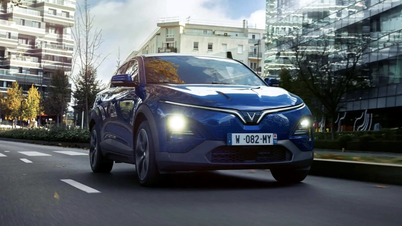








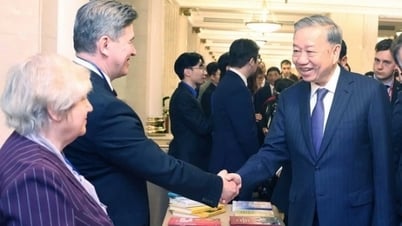












































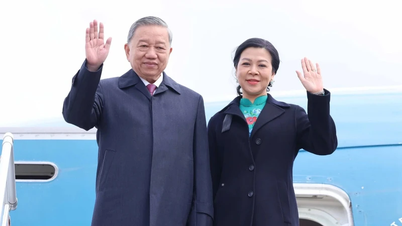
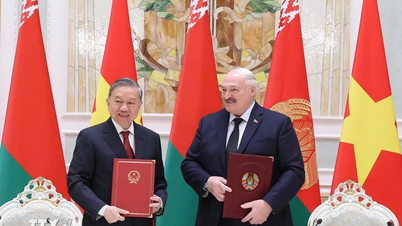













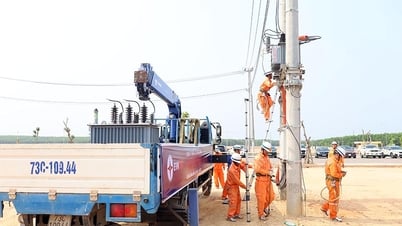



















Comment (0)